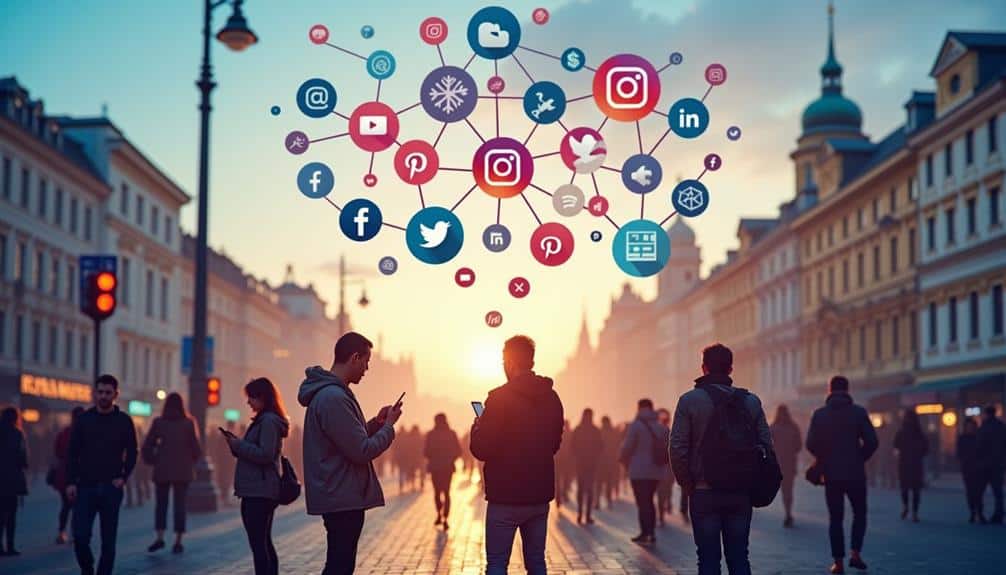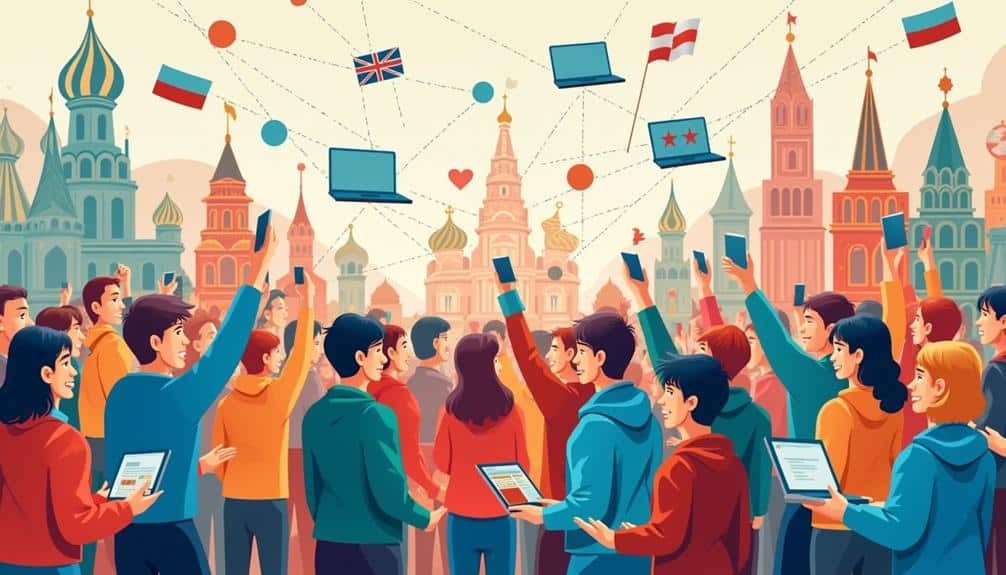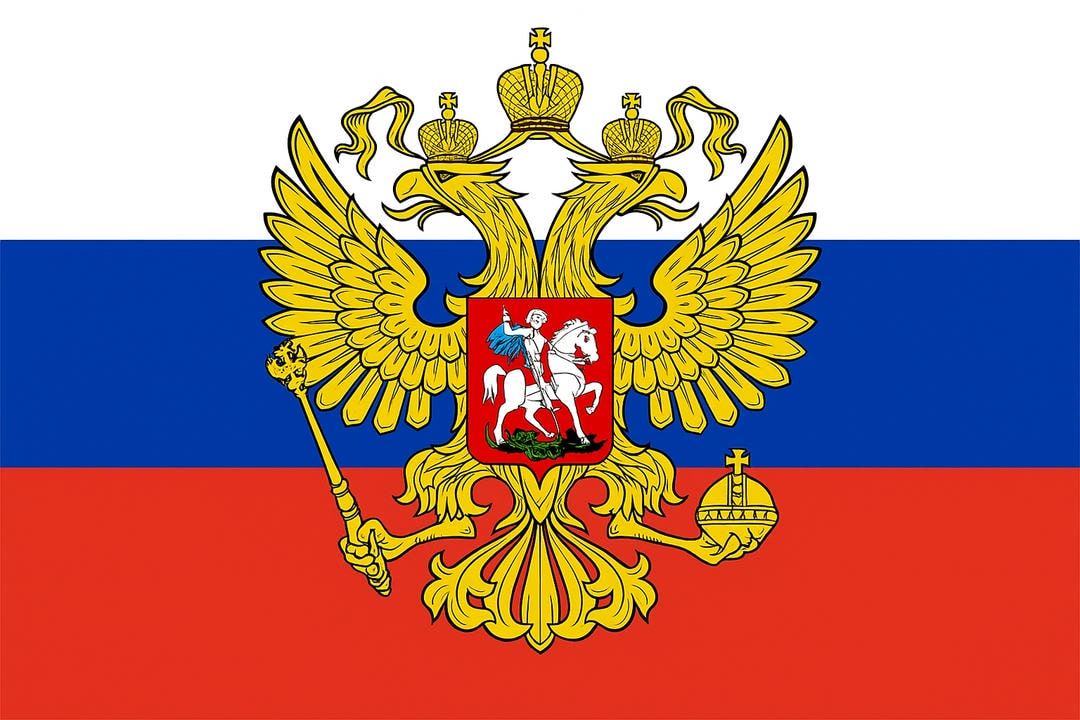The integration of technology into Russian society has initiated profound shifts in social dynamics, particularly in communication, commerce, and civic engagement. Social media platforms have become pivotal arenas where state narratives and grassroots movements intersect, markedly influencing public discourse. Messaging apps facilitate unprecedented levels of connectivity, creating virtual communities that transcend geographic limitations. Additionally, the proliferation of e-commerce and the rise of online activism empower citizens in novel ways, reshaping consumer behavior and enhancing civic participation. As these trends evolve, the implications for Russian society are both complex and far-reaching, warranting closer examination.
Social Media Influence

Social media has significantly transformed the social landscape in Russia, becoming a vibrant platform for community engagement and a powerful tool for economic growth. This transformation is driven by the dynamic interaction between user engagement, social media algorithms, and the effective use of influencer marketing.Social media algorithms are designed to highlight content that generates high levels of interaction, thereby amplifying voices and opinions that resonate with broad audiences. In Russia, this system has enabled the emergence of influential online personalities who can impact various aspects of daily life, from consumer choices to cultural trends. Influencer marketing has emerged as a key strategy for shaping societal trends and fostering connections within communities.The innovative use of social media allows individuals and brands to connect authentically with their audiences. By leveraging influencer partnerships, brands can create engaging content that resonates deeply with their followers, enhancing brand loyalty and community ties.This sophisticated approach to social media highlights the importance of open communication and organic engagement within the Russian community.Understanding the role of social media in Russia involves recognizing the synergy between user engagement, algorithmic curation, and influencer marketing. This triad not only drives online interaction but also enriches the social fabric and contributes positively to the economy, fostering a culture of creativity and collaboration.
Digital Communication Trends
Amidst the rapid evolution of digital technologies, Russia has witnessed significant shifts in communication trends that are reshaping how individuals and organizations interact. The advent of messaging apps such as Telegram, Viber, and WhatsApp has revolutionized interpersonal communication by fostering instant connectivity and enabling the formation of virtual relationships.
These platforms are not only popular for personal conversations but also serve as critical tools for professional exchanges and organizational communication.
The rise in the use of messaging apps underscores a broader trend towards digitalization in Russia, where traditional face-to-face interactions are increasingly supplemented, or even replaced, by digital communication. This shift has led to the creation of robust virtual communities that transcend geographical boundaries, allowing people to maintain relationships regardless of physical distance.
Moreover, messaging apps have become indispensable in the sphere of business, facilitating immediate communication and collaboration within and between organizations. This has led to increased efficiency and streamlined operations, as information can be exchanged swiftly and securely.
Smart Technology Adoption

Increasingly, smart technology adoption is transforming various aspects of Russian society, influencing both daily life and industrial operations. Smart home integration has seen a significant rise, with Russian consumers adopting devices such as smart thermostats, lighting systems, and security cameras. These technologies offer enhanced convenience, energy efficiency, and security, aligning with the growing demand for modern, connected living environments.
Wearable technology is also gaining momentum across Russia. Devices such as fitness trackers and smartwatches are becoming common, providing users with real-time health data and seamless connectivity. This trend reflects a broader global movement towards health consciousness and personalized well-being. Russian businesses are capitalizing on this by developing and marketing innovative wearable solutions tailored to local needs.
The industrial sector is not left behind; smart technology is revolutionizing operations through automation and advanced monitoring systems. These innovations drive productivity and reduce operational costs, fostering a more competitive industrial landscape.
As smart technology continues to evolve, its integration into Russian life signifies a broader shift towards a tech-savvy society. The implications of this transformation are profound, impacting how individuals interact with their environments and how industries optimize their processes.
E-commerce and Consumer Behavior
How has the digital era reshaped consumer behavior in Russia? With the advent of e-commerce, Russian consumers have increasingly embraced mobile shopping, transforming how they interact with products and services. The convenience of making purchases through smartphones has led to a significant uptick in online transactions, driven by enhanced mobile platforms and user-friendly interfaces.
Consumer trust, a critical factor in e-commerce, has evolved alongside these technological advancements. Initially, skepticism towards online transactions was prevalent; however, as e-commerce platforms have implemented robust security measures and transparent return policies, trust has markedly improved.
Moreover, the rise of customer reviews and ratings has empowered consumers to make informed decisions, bolstering their confidence in the digital marketplace.
Additionally, social media integration has facilitated a more personalized shopping experience, with targeted advertisements and recommendations aligning closely with consumer preferences. This has not only increased the frequency of online purchases but also diversified the range of products that consumers are willing to explore.
Online Community and Advocacy

As Russian consumers increasingly embrace digital platforms, the landscape of online engagement and community advocacy has flourished. The rise of social media networks and instant messaging apps has ushered in a new era of digital interaction, empowering individuals to express their views and rally support like never before. This transformation has enhanced access to information and provided a robust tool for grassroots mobilization, enabling everyday people to act as agents of positive change.
Digital engagement in Russia has often focused on themes such as community well-being, environmental sustainability, and social equity. Platforms like VKontakte, Telegram, and YouTube have become vital spaces for sharing information and organizing collective efforts. These digital channels not only amplify the voices of diverse individuals but also offer a level of privacy and security, which is essential in a context where traditional forms of public engagement may face challenges.
Furthermore, the impact of online advocacy has been strengthened by the innovative use of multimedia content, hashtags, and viral campaigns. These strategies help capture public interest and maintain momentum, creating a ripple effect that resonates beyond local communities.Consequently, technology continues to reshape the social dynamics in Russia, empowering citizens to drive meaningful change and fostering a vibrant digital culture that celebrates collaboration and engagement.




